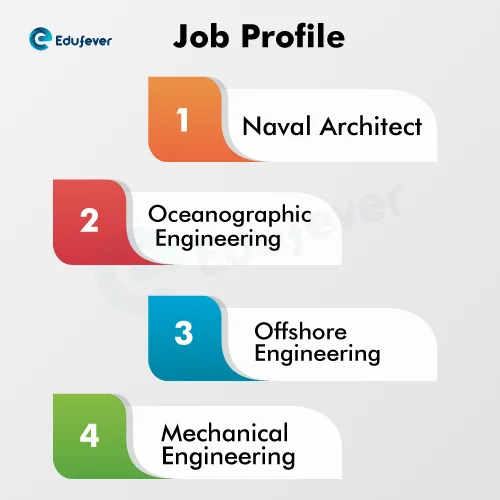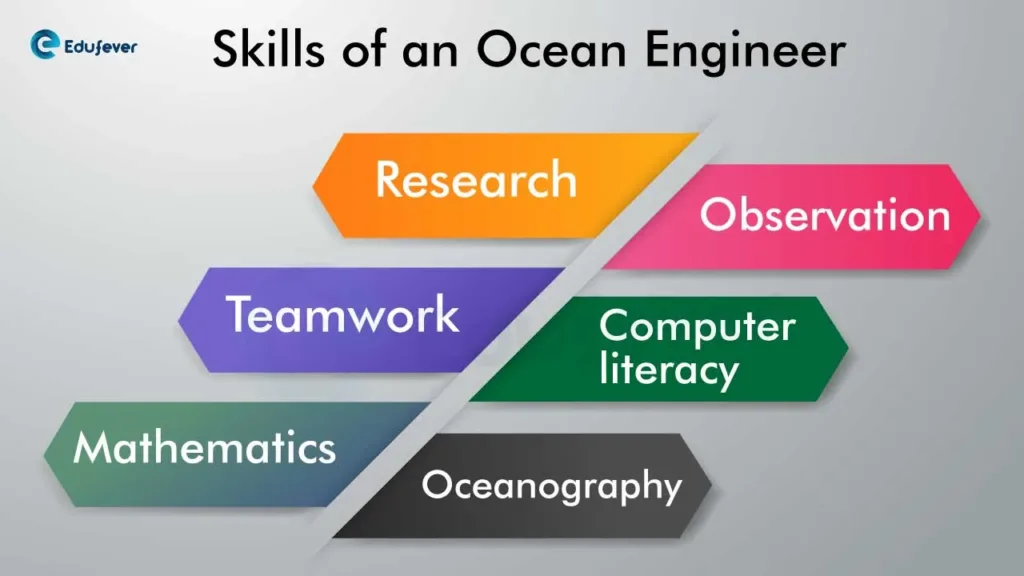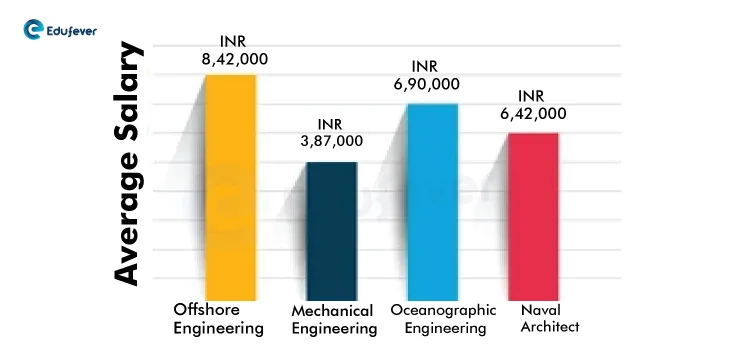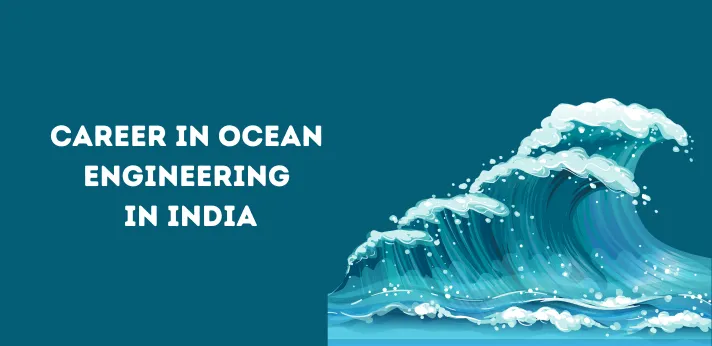Career in Ocean Engineering in India: Have you ever wondered about the skills required for the design and construction of ships and marine vehicles? This type of work is done by Ocean Engineers. This article offers insights into Ocean Engineering careers, helping you determine if it’s the right profession for you. Explore various Ocean Engineering courses offered by colleges in India and the job opportunities available in this field.
Ocean Engineering is another form of civil engineering, and hence it requires artistic skills. The introduction of Ocean Engineering has changed the method of study of Oceanography. If you are interested in inventing and designing marine structures such as ships, continue reading this article to find more details about Ocean Engineering.
[Index]
What is Ocean Engineering?
Ocean Engineering combines various disciplines like Civil Engineering, Chemical Engineering, Electrical Engineering and Mechanical Engineering. Ocean Engineering focuses on designing and building tools and equipment for oceanography studies. Those who practice Ocean Engineering are called Ocean Engineers and may have to work in challenging and hazardous environments.
An Ocean Engineer is expected to have comprehensive knowledge of the ocean, including its natural resources like oil and oxygen. In the past, oceanographic research studies could take months to complete. However, the advent of Ocean Engineering has simplified their work.
Course Highlight
This table offers an overview of Ocean Engineering.
| Particulars | Description |
|---|---|
| Course Name | B.Tech in Ocean Engineering M.Tech in Ocean Engineering |
| Duration | UG: 4 Years PG: 2 Years |
| Types of Ocean Engineer | Naval Architect, Oceanographic Engineering, Offshore Engineering, Mechanical Engineering |
Admission Procedure
- Candidates must qualify 10+2 examination, with Physics, Chemistry, Mathematics and Biology as compulsory subjects.
- Candidates should score at least 50% aggregate marks.
- Candidates can appear in the entrance exams like MERI, IMU CET, JEE, GATE etc.
Eligibility Criteria
The following are the eligibility criteria for genetic engineering:
| Particulars | Descriptions |
|---|---|
| Qualification | The candidates must have passed Class 12th with with Physics, Chemistry, Mathematics and Biology as compulsory subjects. |
| Qualifying Marks | Candidates must have a minimum of 50% marks. |
Top Colleges in India for Ocean Engineering
Below we have produced some of the best Colleges in India offering Ocean Engineering Careers are as follows:
| College Name | Location |
|---|---|
| National Institute of Technology | Calicut |
| Indian Institute of Technology | Surathkal |
| Indian Institute of Technology | Chennai |
| National Ship Design and Research Centre | Vishakapatnam |
| International Maritime Academy | Chennai |
Career in Ocean Engineering
Ocean Engineers play a vital role in assisting Oceanographers and Marine Biologists with their research projects. Ocean Engineers often have to work in challenging and hazardous environments, such as ships or submarines, to carry out their tasks.
Various industries, including governments, private sectors, oil, conservation, and navigation, provide numerous job openings for Ocean Engineers. They can seek employment with construction firms specializing in offshore structures, oil drilling, and exploration companies. Job roles such as inspector, surveyor, lecturer at universities, and welding engineer are also an option.
Job Profile
- Naval Architect
- Oceanographic Engineering
- Offshore Engineering
- Mechanical Engineering

Roles of an Ocean Engineer
Here are some of the important roles of Ocean Engineers:
- Design and Development: Ocean engineers are responsible for designing, developing, and supervising the construction of structures and systems built to withstand the challenging ocean environment. This includes offshore oil rigs, wind farms, coastal protection systems, and underwater vehicles.
- Problem-Solving: They address ocean-related challenges like extracting clean energy from waves or tides, managing coastal erosion, and creating sustainable approaches for offshore resource extraction.
- Material Specialists: When choosing materials, Ocean Engineers need to be careful and consider factors such as corrosion from saltwater, high pressures at depth, and the effects on marine life.
- Environmental Responsibility: Ocean engineers must take into account to balance of innovation with environmental protection.
- Data Analysis and Innovation: They use information about ocean currents, waves, and weather patterns to enhance designs and guarantee safety. Along with new technologies and research to devise creative solutions for ocean engineering dilemmas.
Skills of an Ocean Engineer
- Research
- Communication
- Observation
- Teamwork
- Computer literacy
- Mechanical skills
- Mathematics
- Oceanography
- Problem-solving

Average Salary
The following is the average salary for ocean engineering at different job profile:
| Job Profile | Average Salary |
|---|---|
| Naval Architect | INR 6,42,000 |
| Oceanographic Engineering | INR 6,90,000 |
| Offshore Engineering | INR 8,42,000 |
| Mechanical Engineering | INR 3,87,000 |

Frequently Asked Questions (FAQs)
Which is better, PCM or PCB?
Students who want a career in engineering or quantitative sciences generally take up PCM, whereas students interested in medical or biological sciences take up PCB. Only those students who are comfortable with mathematics should opt for PCM.
Is engineering good for the future?
A degree in engineering opens up a career path toward high-paying, in-demand jobs. According to the U.S. Bureau of Labor Statistics, engineering professions typically have higher wages than the national median and a relatively positive growth outlook.
What are the Career Options after 12th with PCM?
There are a lot of Career Options after 12th with PCM, some of them are Engineering, Architecture, Merchant Navy, Commercial Pilot, and Bachelor of Science.
